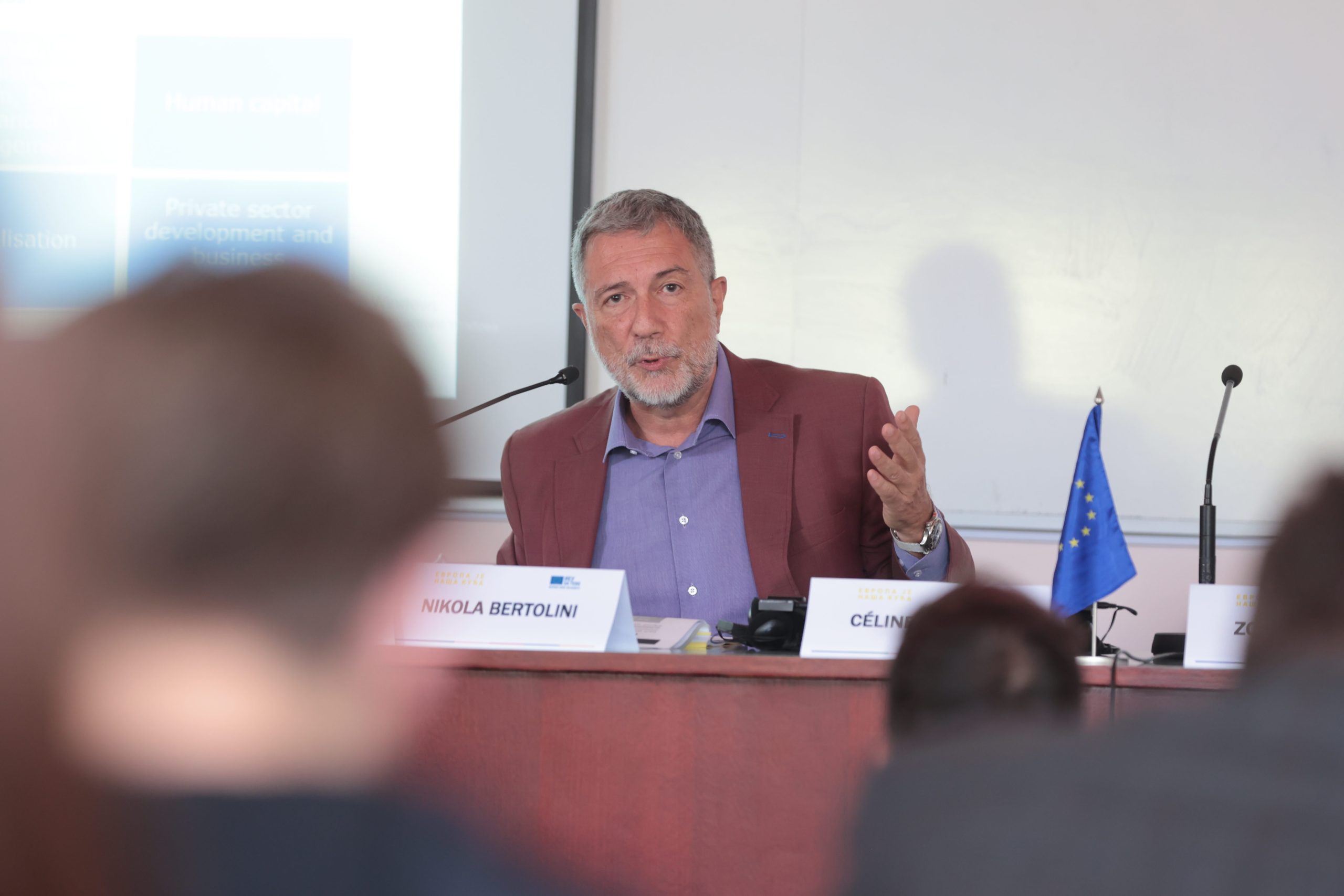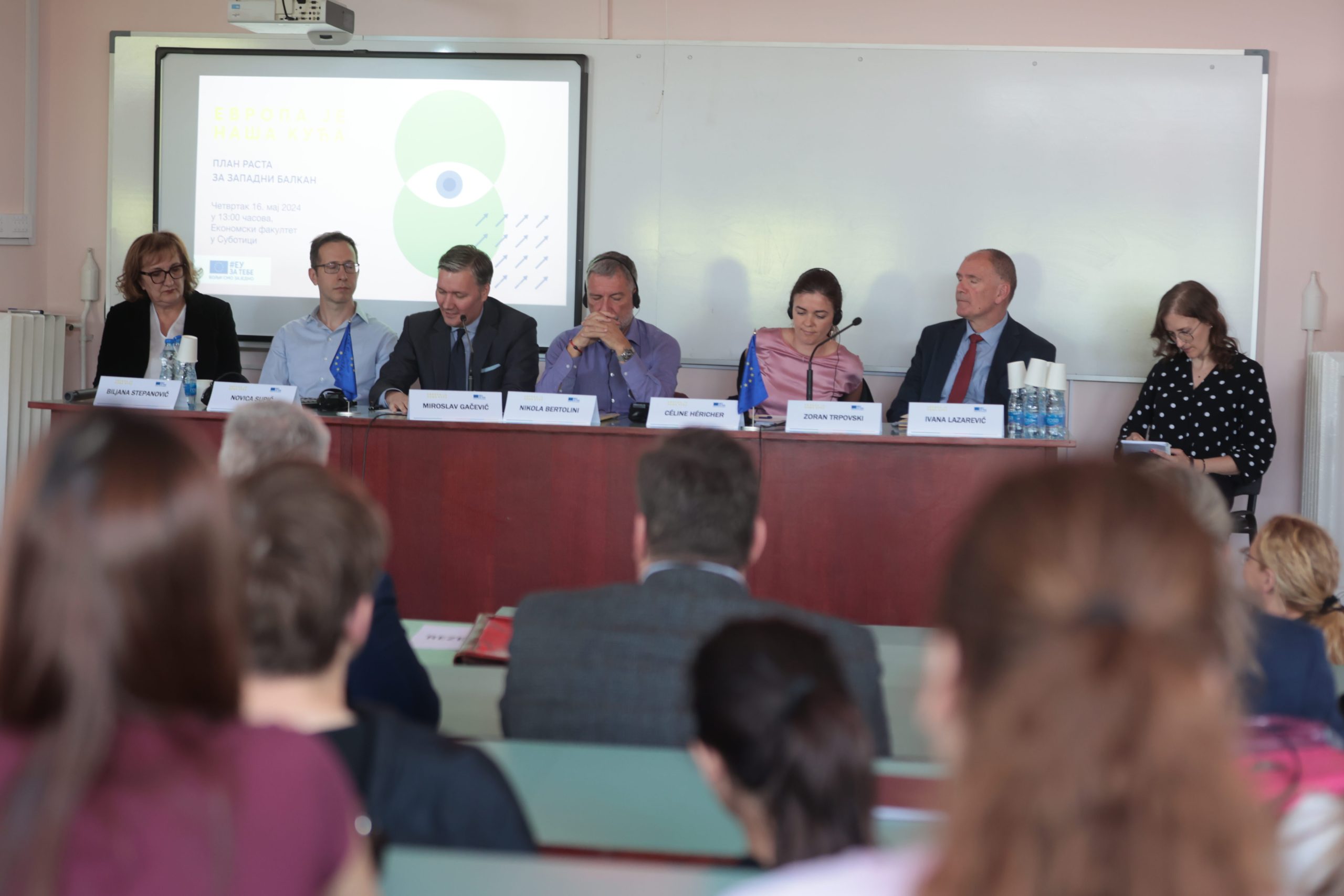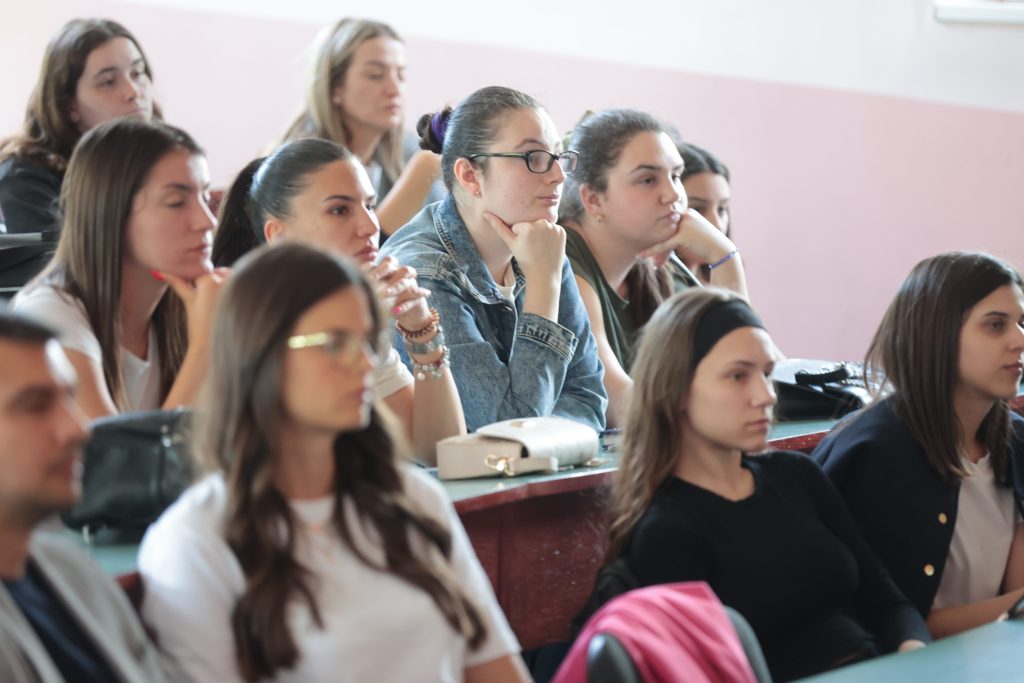On May 16th, Europe Day was celebrated at the Faculty of Economics in Subotica with a public discussion dedicated to the EU Growth Plan. Distinguished participants from the Ministry of European Integration, Embassy of France, media and CSO highlighted the substantial benefits and potential, as well as the challenges that this strategic document presents for Serbia and the region. The event was part of the campaign “Europe is Our Home“ launched by the Delegation of the European Union to Serbia end of April.
The European Union’s Growth Plan for the Western Balkans, worth EUR 6 billion, aims in bringing the Western Balkans partners closer to the EU and has the potential to double the region’s economy over the next decade. This ambitious plan promises significant financial support, including EUR 2 billion in grants and EUR 4 billion in favourable loans, which can propel Serbia towards a more robust economic future and closer integration with the European Union.
Nicola Bertolini, Head of Cooperation at the EU Delegation to Serbia, emphasised, “There have been significant changes throughout the region, many of which relate to EU accession. The European Union has provided substantial support for this process.”

The Growth Plan for the Western Balkans is scheduled for the period from 2024 to 2027. The amount each economy will receive depends on the speed at which it implements necessary reforms and fulfils obligations from the European integration process, as well as the number of projects it is ready to submit to the European Commission to draw funds from the common Fund.
The region is historically, culturally, and economically linked to the European Union, which is the largest donor in Serbia and its most important trade and economic partner. Currently, 65% of Serbian exports go to EU member states, and more than half of all imports into Serbia come from the EU.
Ivana Lazarević, representative of the National Convention on the EU, stated, “The Growth Plan provides a framework for Serbia to improve its use of EU funds and define its development priorities.”
Novica Supić, Professor at the Faculty of Economics in Subotica, stated, “The Republic of Serbia can count on 1.6 billion euros from the EU Growth Plan for the Western Balkans over the next four years in the form of grants and favourable loans. The key benefit is not just the funding, but the structural reforms that come with it, which are essential for Serbia’s progress.”
Biljana Stepanović, Editor-in-Chief of Nova Ekonomija, offered a critical perspective: “While presented as an economic plan, the Growth Plan is also deeply political. The EU’s renewed commitment shows it cares about this region. Serbia must advance in rule of law, media freedom, and anti-corruption efforts to fully benefit.”
The EU Growth Plan mandates progress in key areas such as the rule of law, anti-corruption measures, public administration efficiency, and education system reform.
The campaign “Europe is Our Home” will continue to celebrate Europe Day through upcoming similar public discussions in Novi Pazar, Niš, Užice, and Kragujevac. The topics of the public discussions vary, from Digitalisation and Innovation, to Cultural Heritage and other, aiming to engage the public and stakeholders in a meaningful conversation about Serbia’s path towards European integration and the optimal use of the EU Growth Plan funds.






